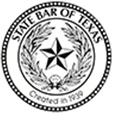On Sept. 1, a statewide ban on texting while driving went into effect in Texas. Still, there may be some confusion about what kind of phone use is permitted behind the wheel, as local municipalities, including Austin, enforce stricter phoning-while-driving ordinances.
Here's a quick breakdown for drivers in Central Texas.
The state law bans "reading, writing and sending" messages while driving -- with a few exceptions.
Anywhere in Texas, drivers are prohibited from using wireless communication devices to read, write or send messages via text, email or social media. If a police officers sees a driver doing any of these things, the driver can be pulled over and fined up to $99 for a first offense. A subsequent offense carries a fine of up to $200.
However, the state law still allows drivers to text if the vehicle is stopped -- for example, at a red light -- or if texting is needed in the event of an emergency.
Again, the state law is more lenient than local ordinances like the one in Austin.
The statewide ban was passed into law after much effort on the part of safety advocates, who for years have pointed to the devastating consequences of distracted driving. In fact, according to the Texas Department of Transportation, last year there were 109,658 crashes in Texas that involved distracted driving. As a result of those crashes, 455 people lost their lives, and more than 3,000 people were seriously injured. In terms of the number of distracted driving accidents, the 2016 statistics show a 3-percent increase from 2015.
Local ordinances throughout the state go further than the state law.
Austin, West Lake Hills, Lakeway, Liberty Hill, Sunset Valley, Bee Cave, Buda, Kyle, Wimberley, San Marcos, Lockhart -- all of these municipalities ban all use of handheld devices while driving. The penalties for violations vary from city to city, although the main concern shouldn't simply be the fine; the main concern should be protecting oneself and others from what is known to be one of the most dangerous driving behaviors.
In addition to local ordinances and the statewide ban on texting while driving, state law prohibits drivers from using handheld devices in active school zones, and novice drivers -- those under age 18 -- are prohibited from using a phone while driving.
Stopping distracted driving accidents requires more than laws and ordinances; drivers must take responsibility.
Despite new laws and increased education efforts, distracted driving accidents are on the rise in Texas and throughout the country. If you or a loved one has been injured because of a distracted driver's negligence, don't hesitate to explore your options for obtaining the full and fair compensation you need and deserve.












No Comments
Leave a comment